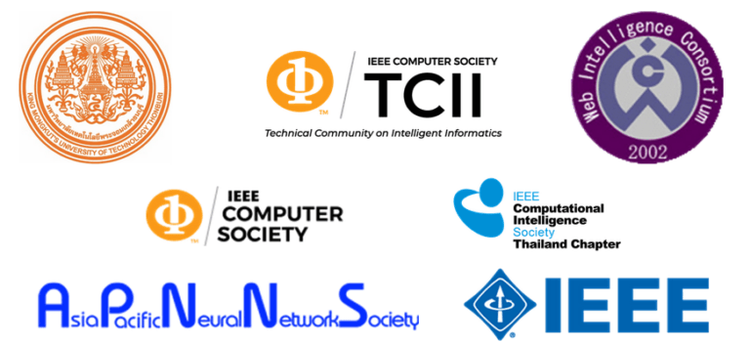By William Aboucaya, Oana Balalau, Rafael Angarita, Valérie Issarny
Published on 2024 IEEE/WIC International Conference on Web Intelligence and Intelligent Agent Technology (WI-IAT) | Access through HAL | Access through DOI
Abstract
Context and motivation
In recent years, online platforms supporting citizen participation have become more common, making organizing large-scale participation easier. Citizen participation platforms share many similarities with social media platforms, such as the ability to upvote and downvote content or to post comments. However, citizen participation platforms aim at enabling contributors to build proposals, with users striving to present concrete proposals that will be submitted to lawmakers. This work focuses on platforms that allow citizens to view and interact with one another's contributions, typically in an asynchronous collaborative workflow. Although citizen participation platforms are valuable for co-constructing large-scale projects, numerous studies such as [1] [2] have reported multiple issues citizens and decision-makers face throughout the participatory process.
Problem
One challenge in large-scale participation is information overload, impacting both decision-makers and users [3] [4]. This overload arises from the large number of contributions, ranging from single paragraphs to long texts. In addition, these texts discuss complex topics, such as laws governing the appropriate use of digital tools. In this work, we propose reducing information overload faced by citizens and platforms administrators by detecting equivalence and contradiction in citizens' proposals.
Method
We introduce an approach to identify pairs of entailed or conflicting proposals via text classification. This objective can be identified as a Natural Language Inference (NLI) task, which involves establishing relationships of entailment or contradiction between a premise and a hypothesis. We apply our method to two French citizen consultations, i.e., "République Numérique" (Digital Republic) and "Revenu Universel d'Activité" (Universal Activity Income). We selected these consultations because they involved a significant number of contributors discussing complex and vital societal concerns. For example, given the proposal "Universal income should be given to every permanent resident of the country", an entailed proposal could be "Universal income should be extended to non-citizens"; a contradictory proposal could be "Universal income should be only for French citizens"; a neutral proposal could be "Universal income should be equal to the minimum wage".
Contribution
The contributions of our work are as follows:
- We propose a methodology for natural language inference for texts from citizen participation platforms, generally longer texts containing several sentences on complex topics.
- We propose and validate two important applications for our NLI method on citizen participation platform. First, aiming to reduce information overload, we investigate whether our method can identify idea communities in online content, grouping related proposals for exploration by administrators. The method proposed combines entailment results between proposals using our models with a graph clustering of the proposals, producing homogeneous idea communities. Second, we conduct an empirical study assessing the capability of our method to find relevant complementary content for a user. We compare the results obtained using our approach with an equivalent method based on semantic textual similarity, a technique proposed by previous research [5] [6] for organizing citizen contributions. We demonstrate that our approach improves on the state-of-the-art for finding relevant complementary content for a user, by identifying new relevant views for 76 % of the proposals tested.
Code and datasets are available at https://github.com/WilliamAboucaya/RUA_RepNum_NLI
References
[1]: I. Cantador, M. E. Cortés-Cediel, and M. Fernández, “Exploiting open data to analyze discussion and controversy in online citizen participation,” Information Processing & Management, 2020.
[2]: M. Ianniello, S. Iacuzzi, P. Fedele, and L. Brusati, “Obstacles and solutions on the ladder of citizen participation: a systematic review,” Public Management Review, vol. 21, no. 1, 2019.
[3]: K. Chen and T. Aitamurto, “Barriers for crowd’s impact in crowdsourced policymaking: Civic data overload and filter hierarchy,” International Public Management Journal, vol. 22, no. 1, 2019.
[4]: O. Perez, “Complexity, information overload and online deliberation,” Journal of Law and Policy for the Information Society, 2009.
[5]: M. Arana-Catania, F.-A. V. Lier, R. Procter, N. Tkachenko, Y. He, A. Zubiaga, and M. Liakata, “Citizen participation and machine learning for a better democracy,” Digital Government: Research and Practice, vol. 2, no. 3, Jul. 2021.
[6]: S. Bachiller, L. Quijano-Sánchez, and I. Cantador, “A flexible and lightweight interactive data mining tool to visualize and analyze digital citizen participation content,” in Proceedings of the 36th Annual ACM Symposium on Applied Computing, ser. SAC ’21. New York, NY, USA: ACM, 2021.
Publié le 13 novembre 2025 par William Aboucaya
